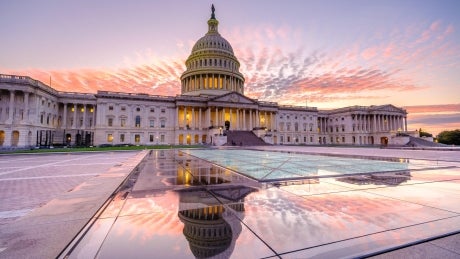White Collar Briefly

White Collar Briefly
Drawing from breaking news, ever changing government priorities, and significant judicial decisions, this blog from Perkins Coie’s White Collar and Investigations group highlights key considerations and offers practical insights aimed to guide corporate stakeholders and counselors through an evolving regulatory environment.

Unanimous Supreme Court Rejects Second Circuit's Limitations on Insider Trading Cases
For those watching in the trading world, the U.S. Supreme Court has confirmed that your friends can, indeed, pass on a gift of non-public information about a company that could leave you criminally liable for insider trading, even if they gain nothing concrete in return.

Will the Panama Papers Lead to Criminal Charges Against U.S. Taxpayers?
The massive Panama Papers leak has attracted attention to the use of offshore business entities and implicated 2,400 U.S.-based clients of Mossack Fonseca.

SEC Charges Private Fund Administrator with Gatekeeping Failures
The Securities and Exchange Commission (SEC) recently announced an administrative settlement with Apex Fund Services (US) Inc., a firm providing administrative services to private funds, based on its alleged failure to heed red flags and correct faulty accounting by two private equity managers.

DOJ’s Increased Focus on Environmental Criminal Cases
Recently, John C. Cruden, DOJ's Assistant Attorney General in charge of the Environmental and Natural Resources Division (ENRD), which oversees DOJ's environmental litigation, voiced a heightened commitment to enforcing environmental laws through criminal prosecution.

Three Key Challenges To the Future of SEC Enforcement
Since the financial crisis, the Securities and Exchange Commission's enforcement activity has been the subject of much attention and debate.

Supreme Court Restricts Pretrial Freezing of Untainted Assets
On Wednesday, March 30, 2016, the U.S. Supreme Court ruled in Luis v. United States, No. 14-419, slip op., that the pretrial restraint of legitimate, untainted assets needed to retain counsel of choice violates the Sixth Amendment.

AAG Caldwell Dispels Rumors of “Yates Certification” Requirement
On March 3, 2016, DOJ Criminal Division's Assistant Attorney General Leslie Caldwell addressed recent media reports claiming that companies under investigation by DOJ will soon need to certify their full disclosure of certain documents as a prerequisite to obtaining a settlement agreement with the Department.

SEC's Use of ALJs: Possible U-Turn Ahead
Oh, what a year makes. Back in October 2014, all the chatter was about the SEC's increased use of its home-grown Administrative Law Judges to move its enforcement actions to their conclusion versus tangling with defendants in federal court.

DOJ Memo to Prosecutors Calls for More Aggressive Pursuit of Corporate Executives
The U.S. Department of Justice—widely criticized for the perceived lack of cases brought against corporate executives—issued a new directive yesterday to all U.S. Attorneys designed to hold more individuals accountable for illegal corporate conduct.

New SEC Guidance: Dodd-Frank Protects Internal Whistleblowers
Shortly after the July 2010 adoption of the Dodd-Frank Act's whistleblower program, disputes began arising over whether its anti-retaliation protections apply to employees who report misconduct internally to the company, but not externally to the SEC.

9th Circuit Rejects Newman Holding on Insider Trading
Why We Should Expect More Criminal Cases Charging Illegal Coordination Between Campaigns and Super PACs

Court Restricts Use of Rule 17(c) Subpoena for Gathering Pretrial Discovery
Although not intended to be used as a broad discovery device, Federal Rule of Criminal Procedure 17(c) permits a party in a criminal case to issue a "17(c) subpoena" to order the production of documents in the possession of third parties.

Major Changes in Government Contractor Compliance
The newly released Federal Acquisition Regulation provisions — arising out of President Obama's 2012 Executive Order 13627 — mandate that all federal contractors take certain actions related to combating human trafficking and slavery in their supply chains.

UK Continues to Ramp Up Enforcement Under Bribery Act
While the primary domestic anti-bribery statute, the FCPA, has been on the books for nearly four decades, the UK's principal anti-bribery law, the UK Bribery Act, is merely an infant, having become effective in July 2011.